Teachers and students from Tsinghua University and the National University of Singapore arrived in Bali, Indonesia for the SDG Southeast Asia Innovation Bootcamp, an event filled with opportunities and surprises on August 25. Staff from the Tsinghua Southeast Asia Center (Tsinghua SEA) were present to welcome the team.
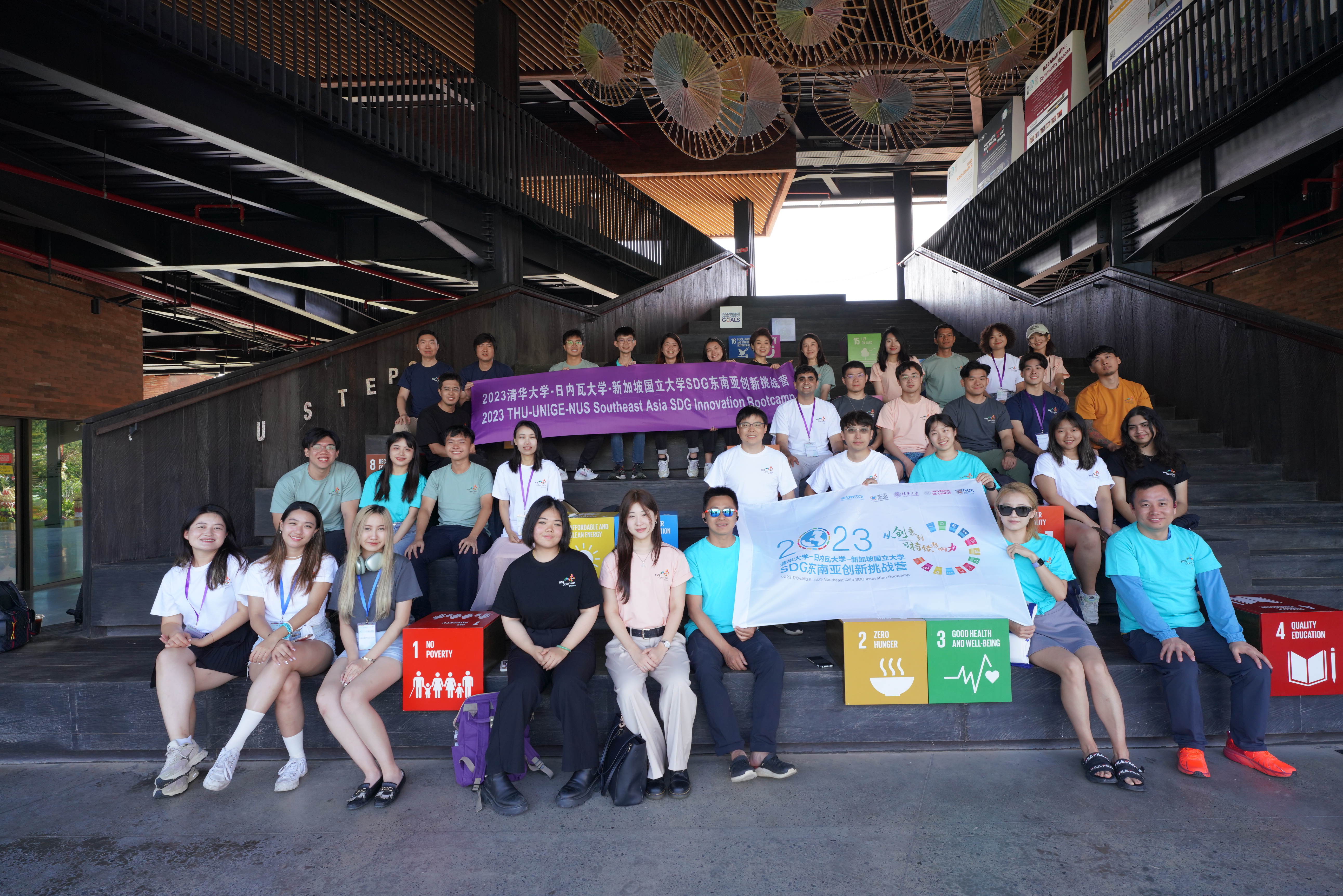
Group photo at the Tsinghua SEA Center
Innovating across borders, universities, and disciplines
The 2023 Tsinghua University (THU)-Université de Genève (UNIGE)-National University of Singapore (NUS) Southeast Asia Sustainable Development Goals (SDG) Innovation Bootcamp is an innovative challenge designed for students of Tsinghua University and collaborating international partners. It encourages students to generate new ideas and use their skills for sustainable development. Through the platform, students from around the world can engage in innovative exchange, foster inter-disciplinary collaboration with sustainable goals, and enhance their innovative and practical skills by solving problems.
The program draws on the strengths of Tsinghua University, Université de Genève, and the National University of Singapore. It's organized by Tsinghua x-lab and supported by several Tsinghua divisions, including the Office of International Affairs, Undergraduate Academic Affairs Office, Graduate School, the Center for Global Competence Development, Southeast Asia Center, School of Economics and Management, Department of Electrical Engineering, School of Architecture, Tsinghua Rural Revitalization Workstation, Student Association on Net-Zero Future, and Student Association of China-ASEAN. External collaborators include Giti Group and the United in Diversity Foundation. The bootcamp is the first Tsinghua student overseas program at the Bali campus of Tsinghua Southeast Asia Center.
The first session attracted 38 participants, including hack leaders, innovation mentors, and undergraduate, master's, and Ph.D. students from 12 departments of Tsinghua University and three schools of the National University of Singapore. Participants came from 10 countries: China, Singapore, Canada, Australia, South Korea, Indonesia, Malaysia, Cambodia, Thailand, and Pakistan. Inspired by their peers' diverse professional and cultural backgrounds, students completed innovative projects under the guidance of hack leaders and innovation mentors.
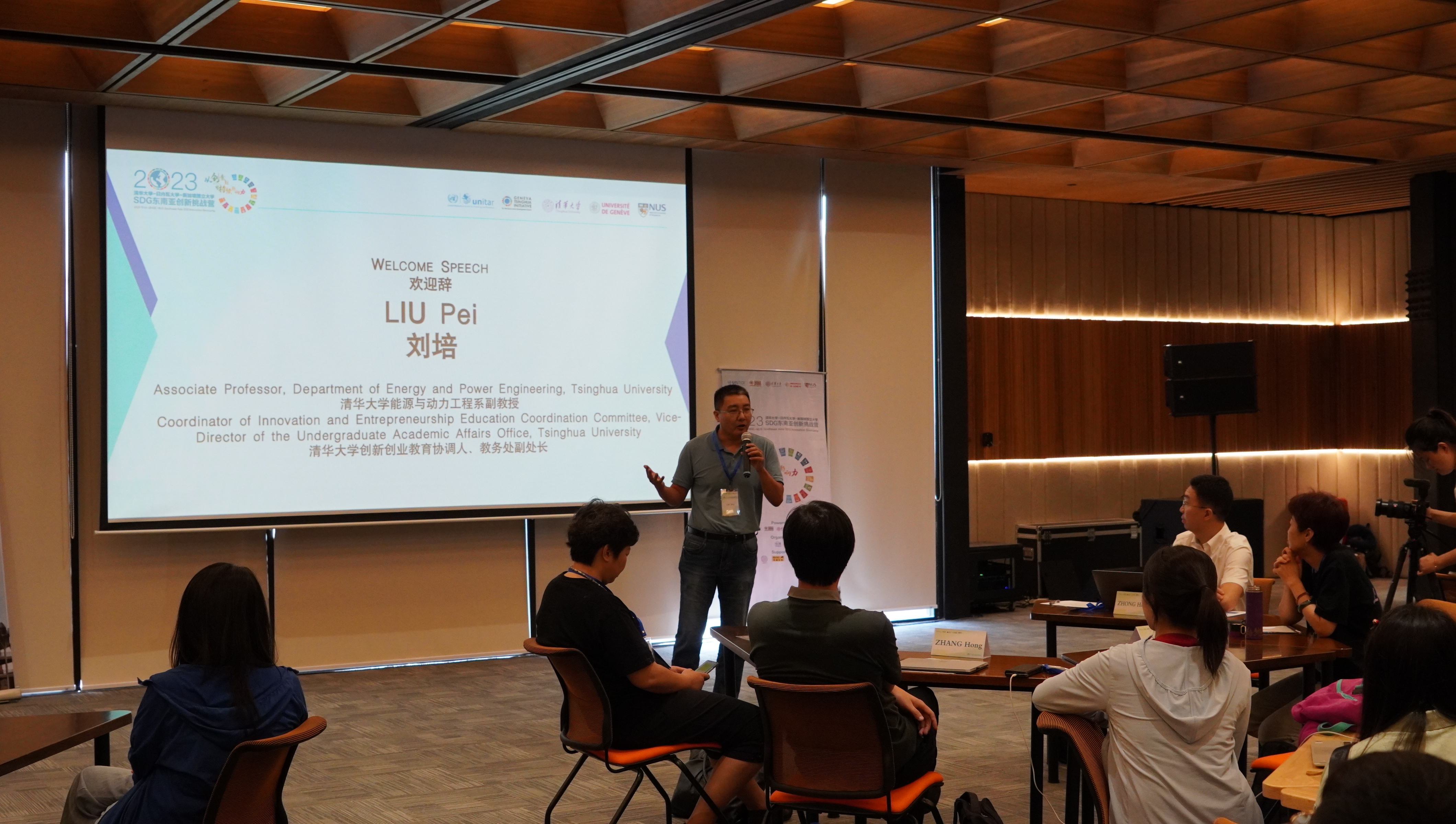
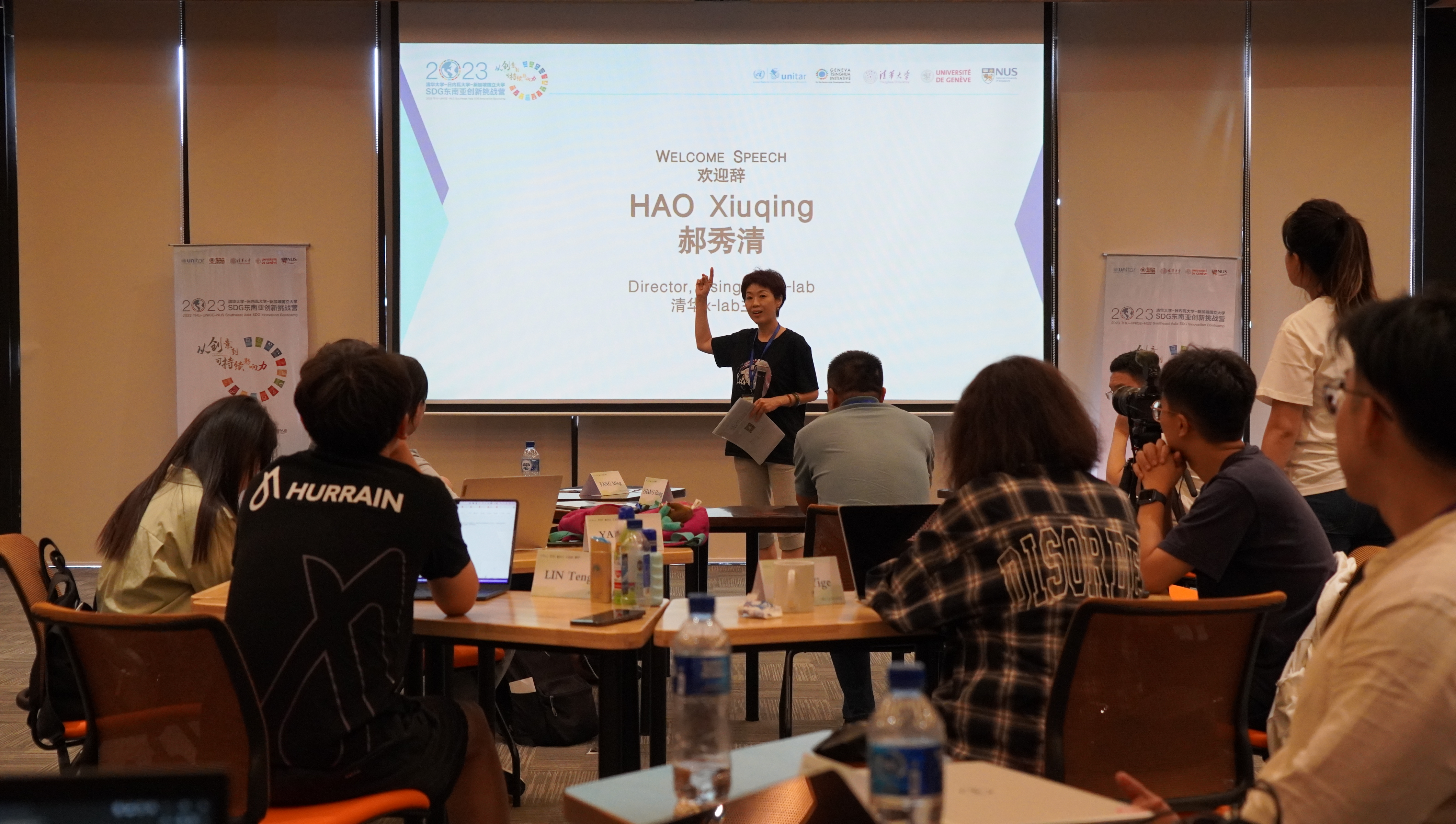
Opening ceremony
LIU Pei, a tenured associate professor in the Department of Energy and Power Engineering at Tsinghua University and vice director of the Undergraduate Academic Affairs Office, emphasized the importance of sustainable development for human progress at the opening ceremony. LIU mentioned numerous opportunities and challenges within this realm and encouraged students to utilize learning and networking opportunities to inspire each other creatively. He also highlighted the potential for personal growth and progress.
HAO Xiuqing, director of Tsinghua x-lab, said she was delighted to see students from various backgrounds and cultures. She looked forward to some students turning their ideas into reality and contributing to efforts in sustainable development.
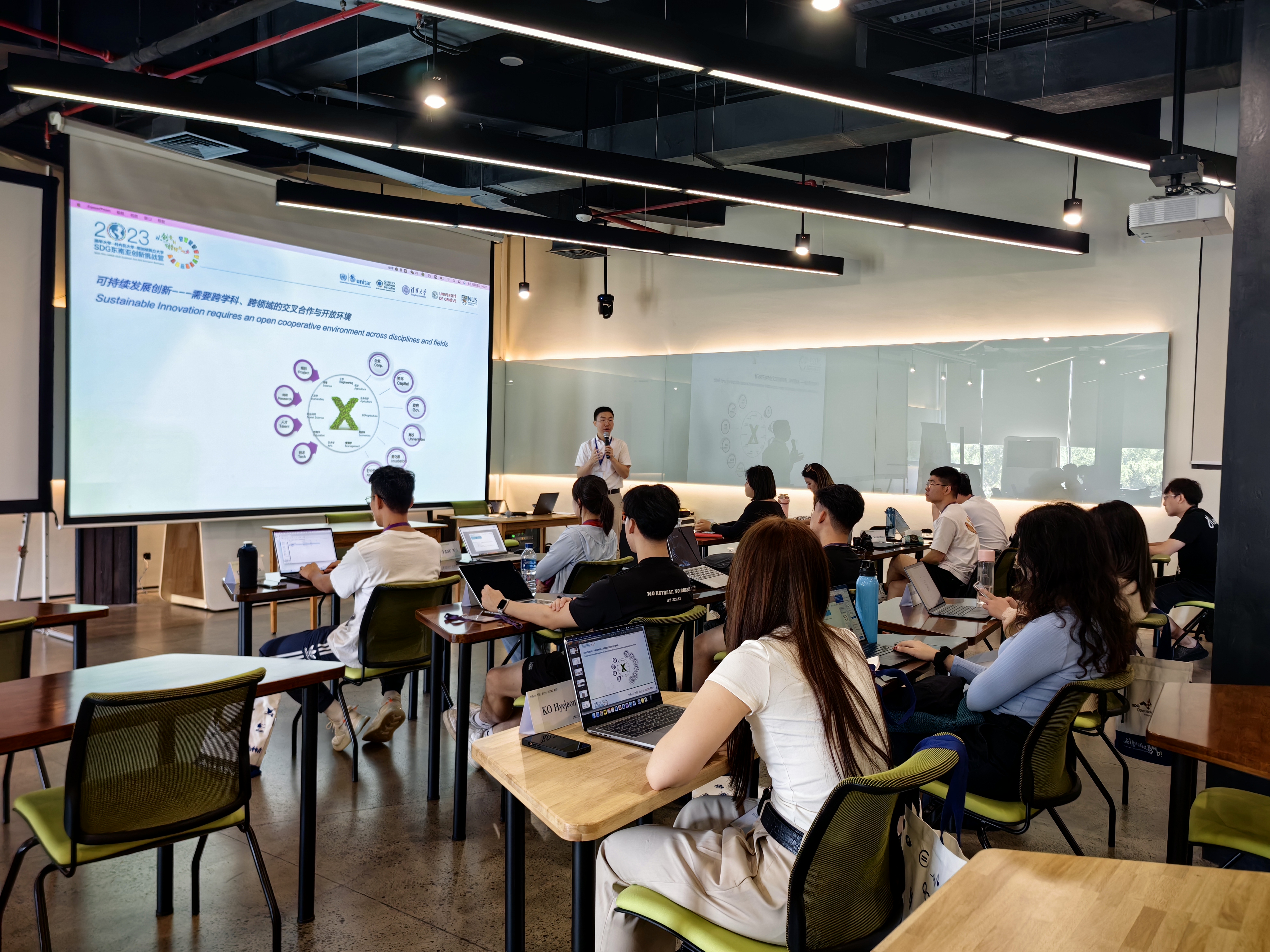
Introduction to the hack theme and rules
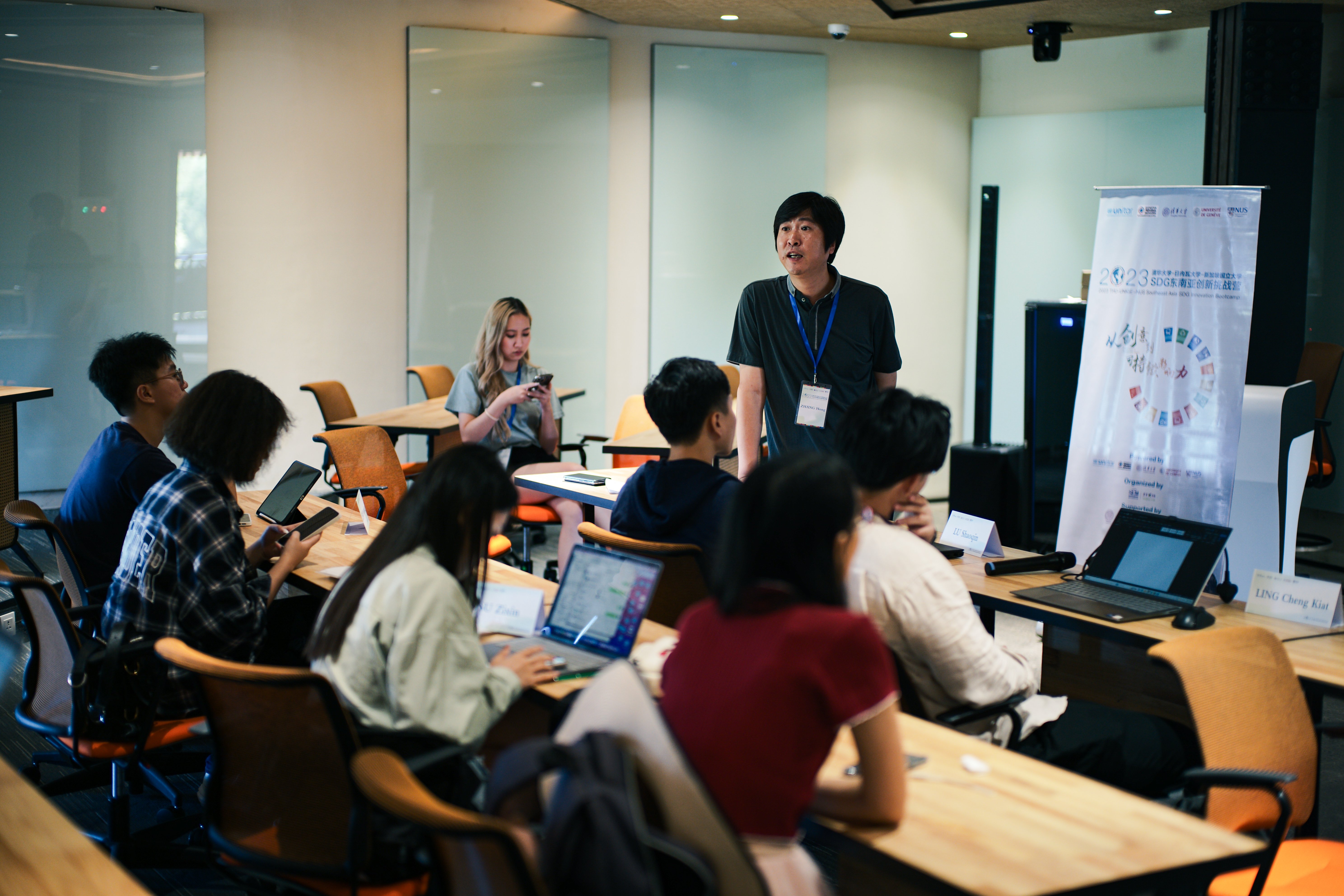
Inspirational talk
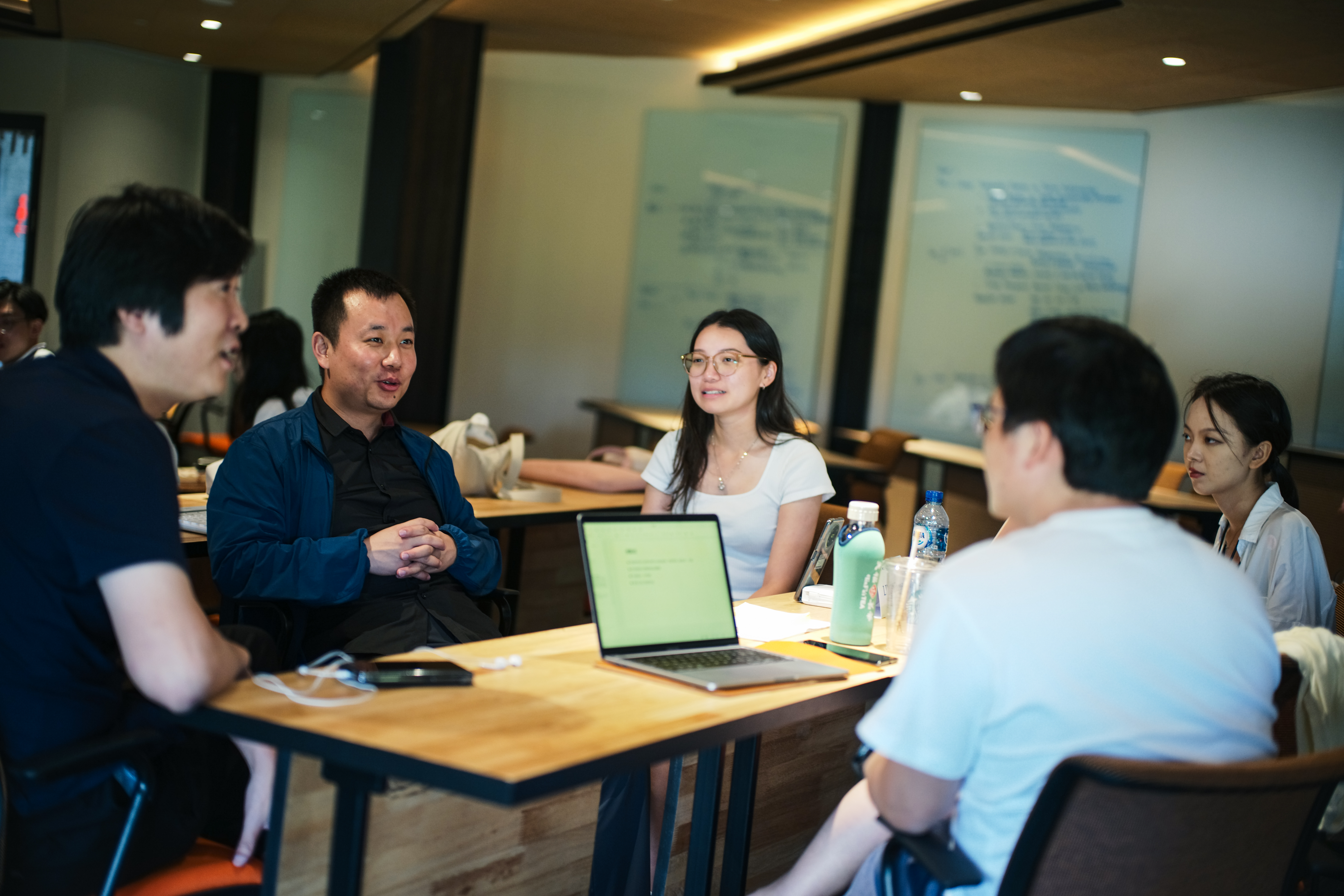
Teams at work
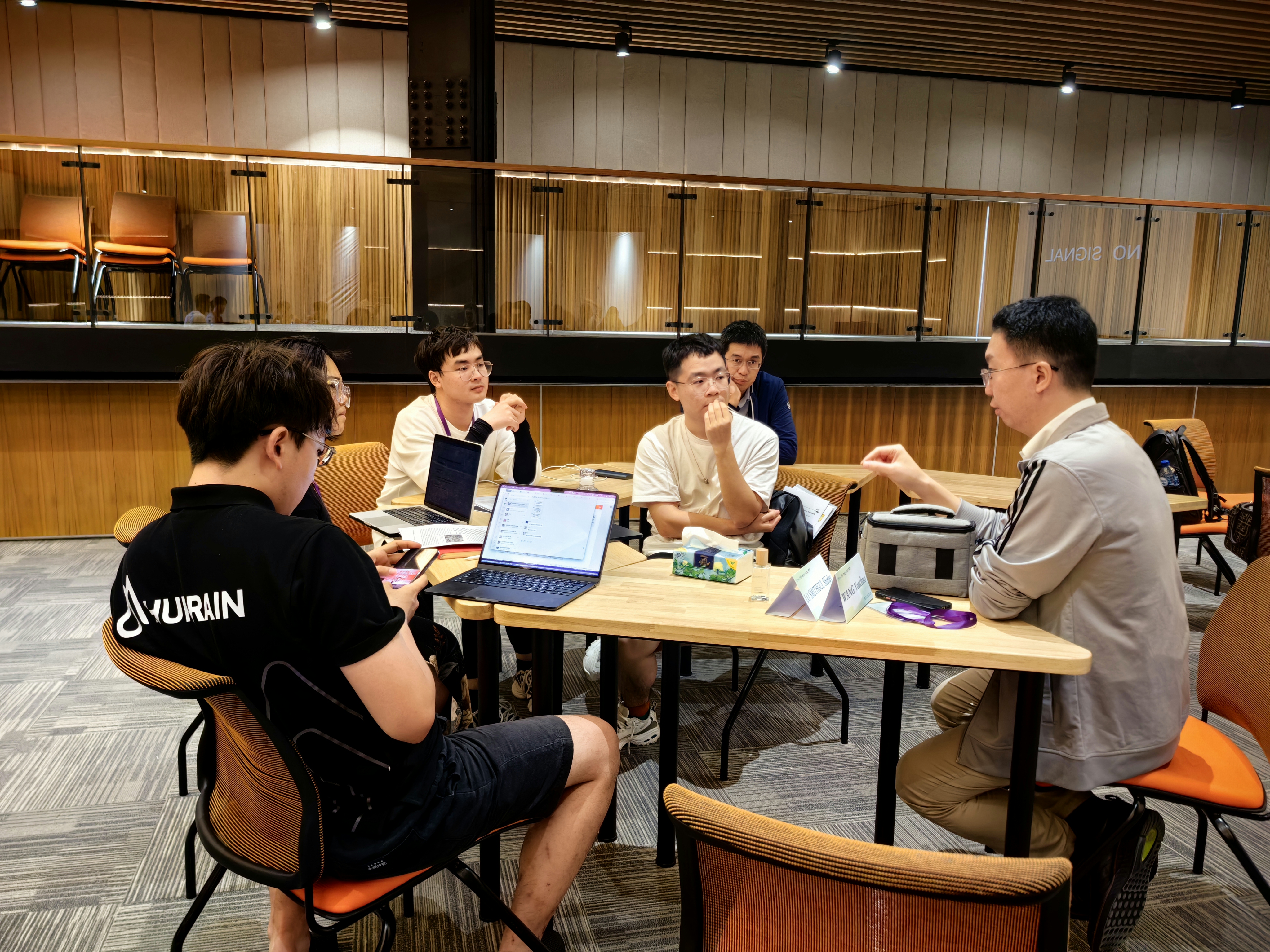
Mentoring opportunities
This year's bootcamp focused on two aspects of sustainability: energy and environmental protection and rural revitalization and smart agriculture. It was divided into two sub-hacks: innovating models to transition energy production to reduce carbon peaking and achieve carbon neutrality, and exploring innovative models for human-oriented city and sustainable agriculture under the scenario of rural revitalization. ZHONG Haiwang, associate professor of electrical engineering at Tsinghua University, and ZHANG Hong, deputy secretary of the Party Committee and associate professor of architecture at Tsinghua University, served as the hack leaders.
The bootcamp also invited LIU Pei, HAO Xiuqing; WANG Yingjie, director of Innovation Ecosystem Development at Tsinghua x-lab; XIA Li, director of Incubation at Tsinghua x-lab, and ZHAO Daqi, assistant researcher at Tsinghua University Rural Revitalization Workstation, as innovation mentors. They guided students in exploration and accompanied them in the collaborative segments.
Cultural experiences from around the world
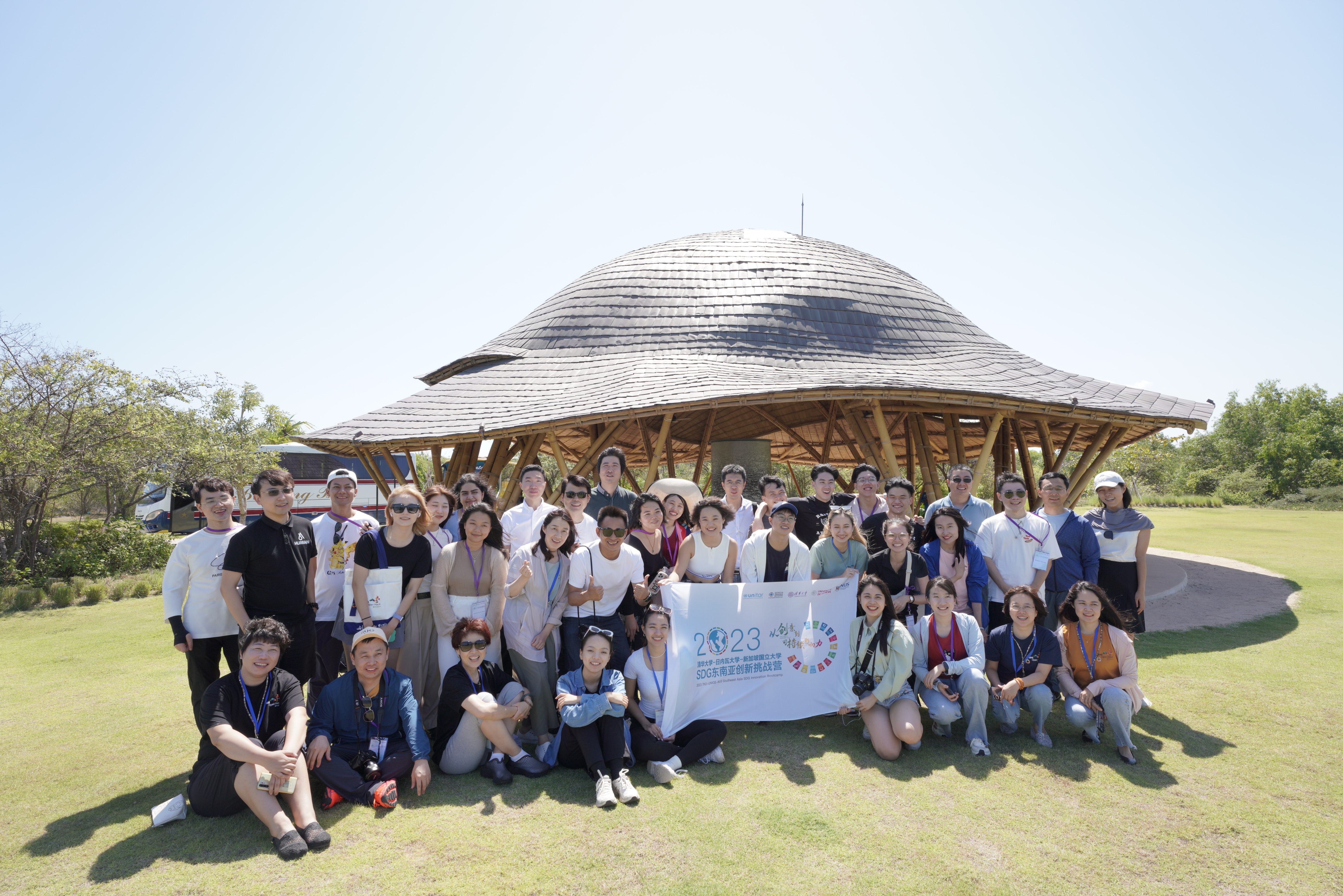
Visiting Kura-Kura Island
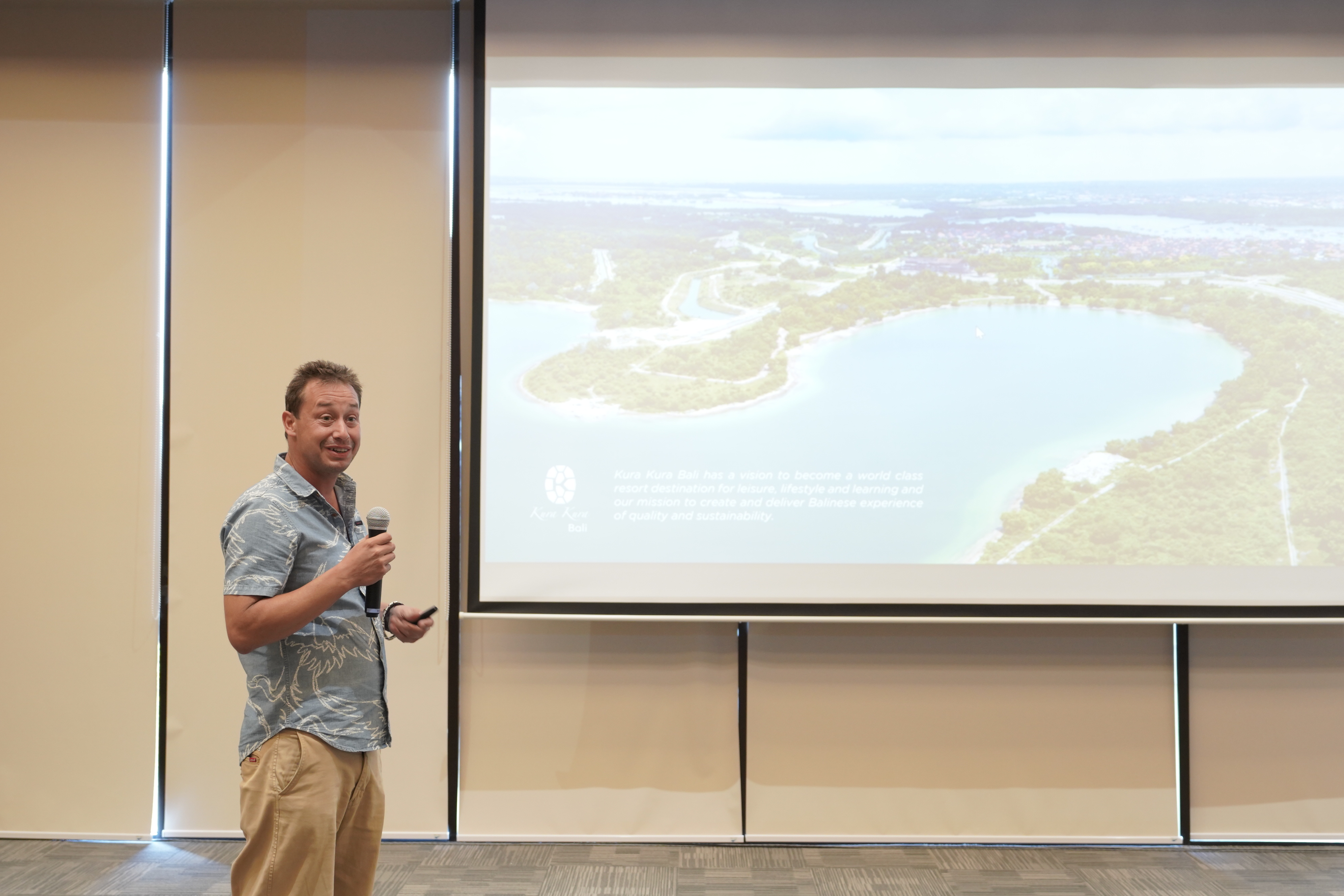
Introducing Bali's Turtle Island Development
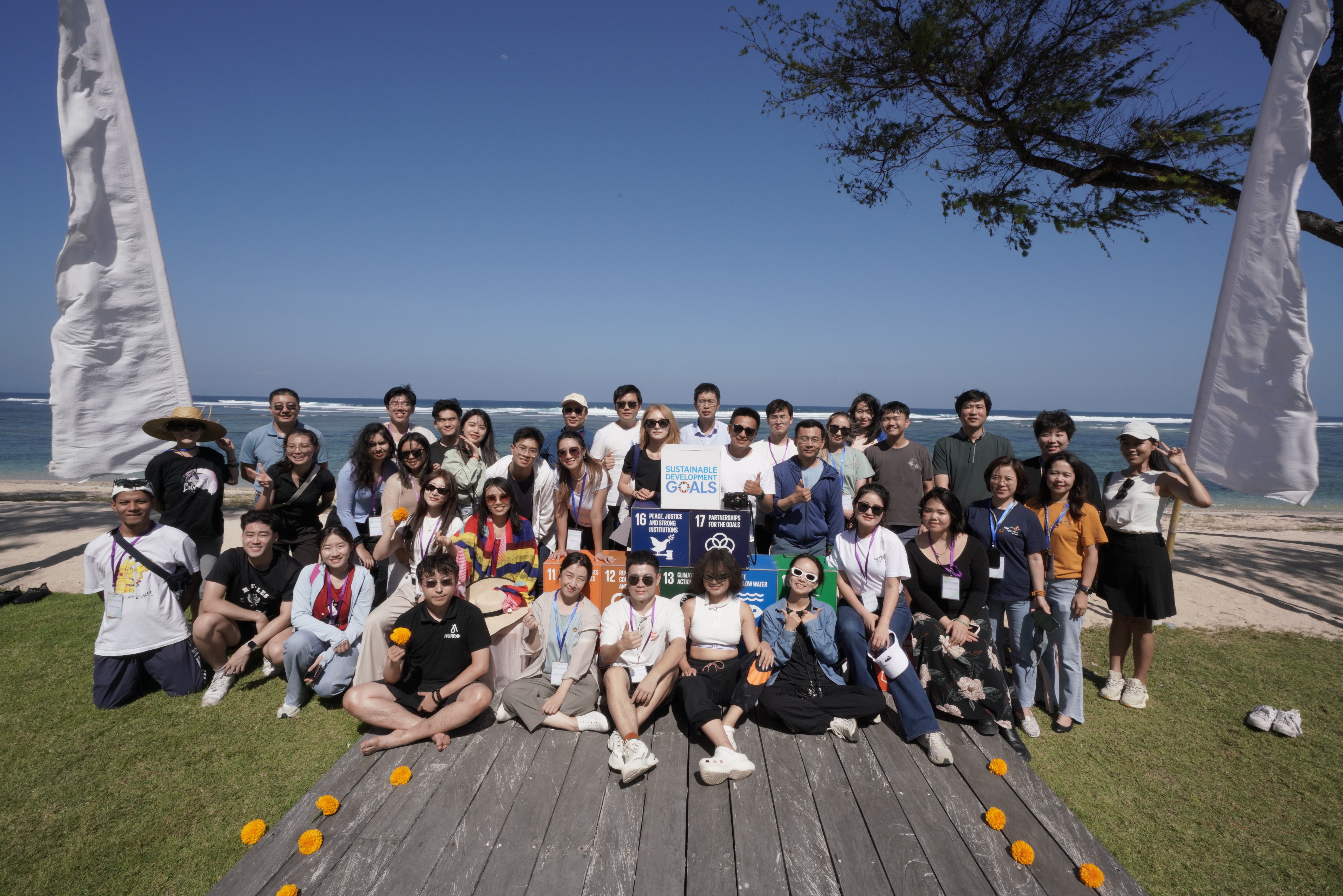
Group Photo at Kura-Kura Island Beach
This part of the journey focused on Turtle Island (Pulau Kura Kura) in Bali. Situated at the southwest tip of Bali, Turtle Island covers an area of 500 hectares and is connected to Bali by one bridge. On April 5, 2023, Indonesia enacted Government Regulation 23, which established Turtle Island as a special economic zone and made it a model project for "New Era Bali."
Turtle Island has maintained close cooperation with China. In April 2019, the Bali Turtle Island Science and Technology Park signed a cooperation framework under the "China-Indonesia Regional Comprehensive Economic Corridor" with several Chinese technology companies, including China Baozun, China Construction Engineering Corporation, Fuchun Holdings Group, and Shenzhen Century Star Source. The cooperation covers various fields such as the creative economy, education and training, scientific research, healthcare, and ecological development.
In October 2022, a marine biology center developed by China's Guangdong InnoSpring and Indonesian companies opened on Turtle Island. In November 2022, Tsinghua Southeast Asia Center in Bali opened its doors.
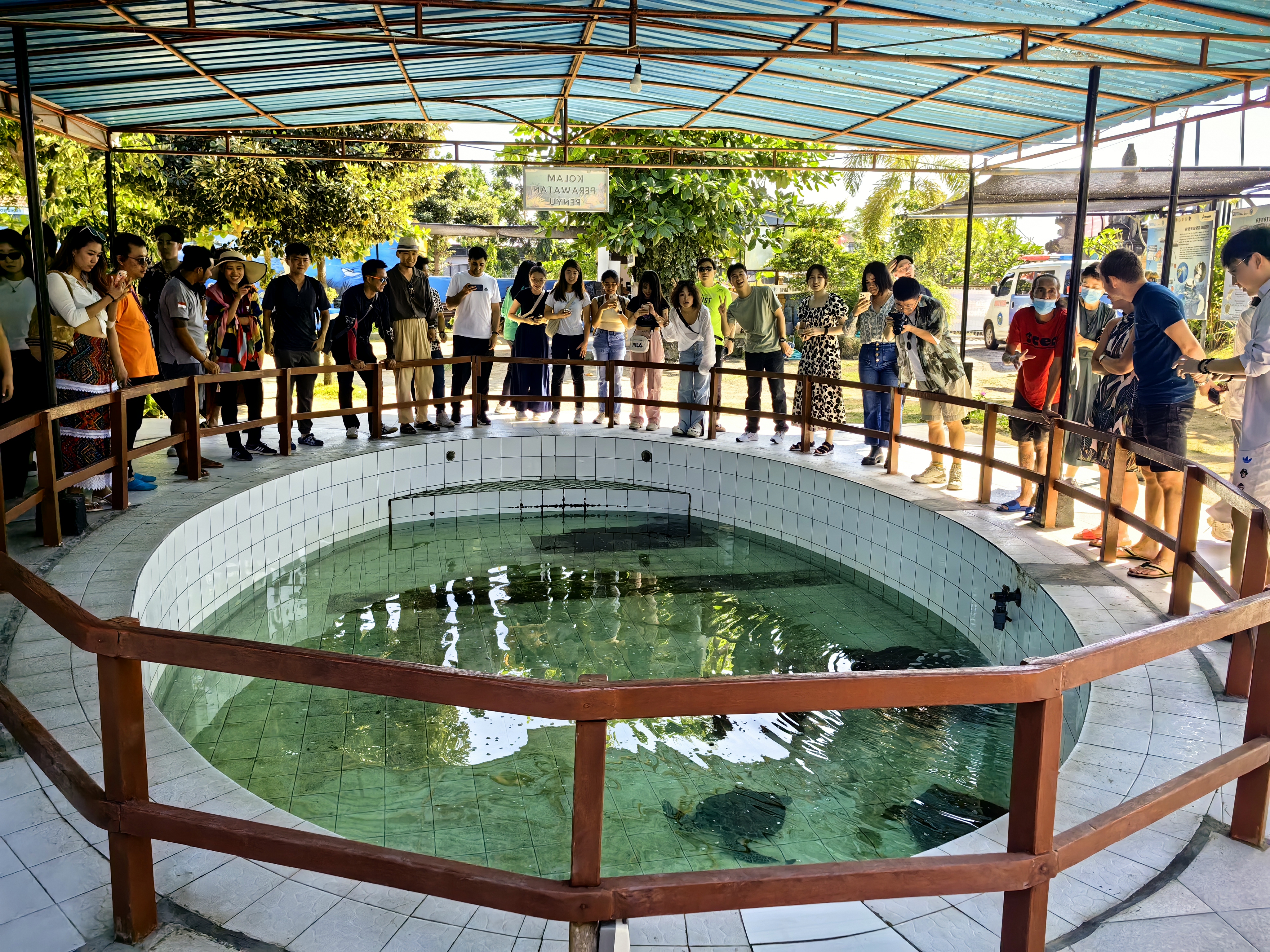
Visiting the Turtle Conservation and Education Center
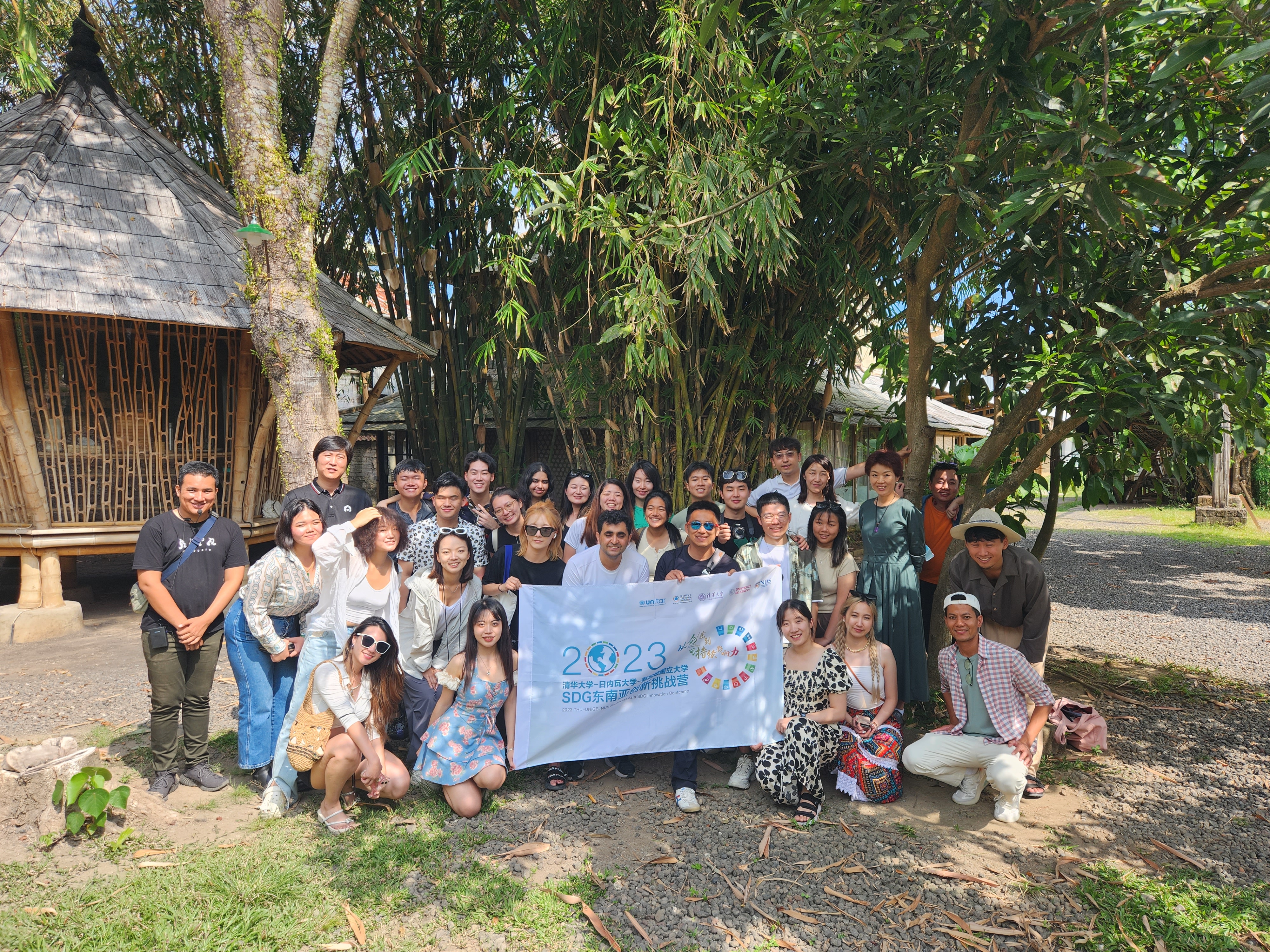
Visiting the Bamboo Factory
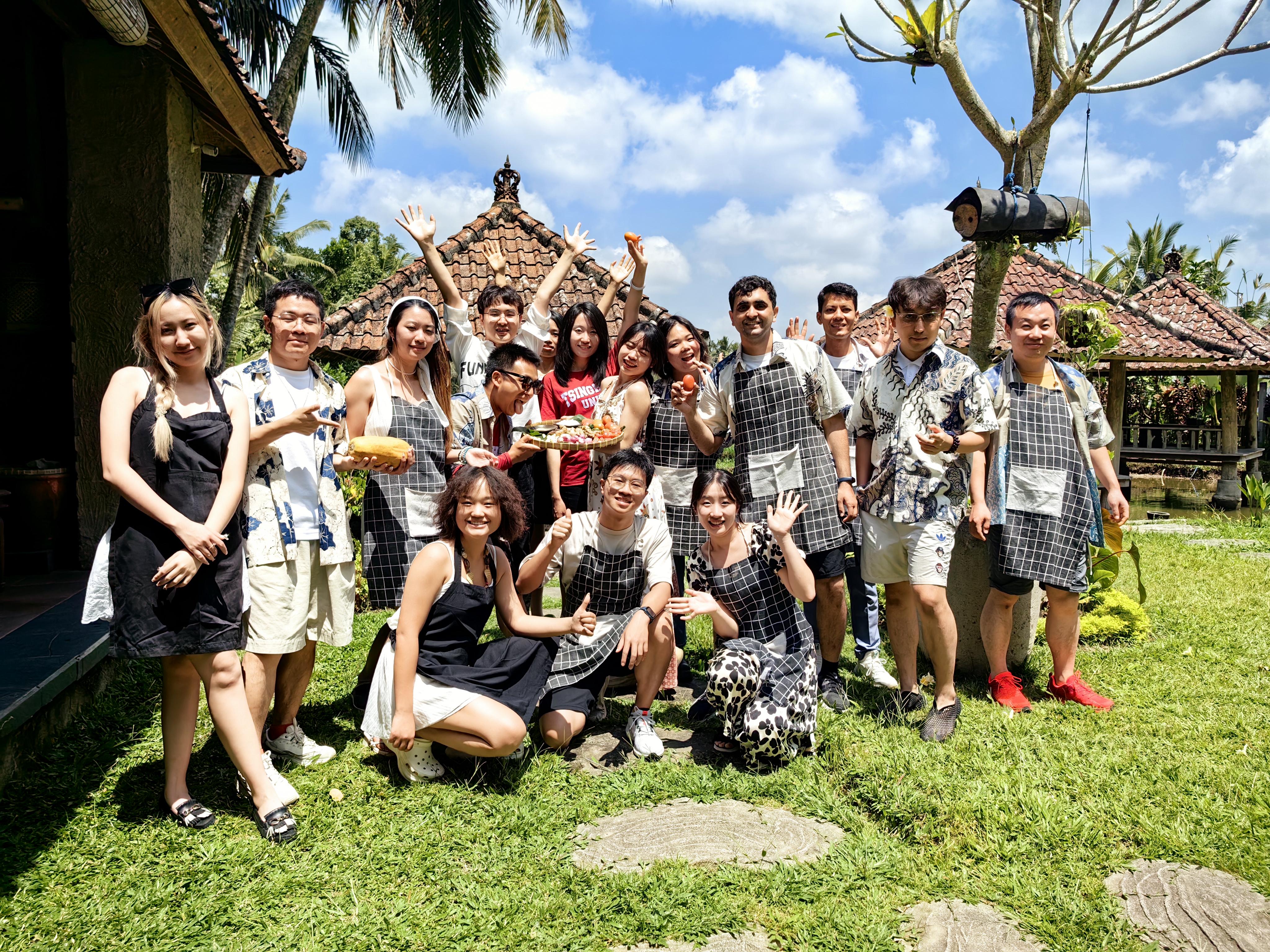
Experiencing local culture
At the Turtle Conservation and Education Center, students met turtles in up-close encounters and got the chance to feed them leaves. The experience was designed to raise awareness about the importance of protecting marine ecosystems.
At the Bamboo Factory, students followed local guides and learned the process of bamboo cultivation and processing. Inside a small bamboo hut, heavy with the scent of the plant, they discussed the prospects for eco-friendly materials. In a showroom filled with bamboo crafts, students played bamboo instruments, admired bamboo lamps, and shared their new discoveries and creative ideas.
Innovative projects with passion, technology, and value
Tsinghua Southeast Asia Center is located on Kura Kura Island in Indonesia, where it overlooks the azure sea and is cooled by the gentle sea breeze. Students from the two sub-hacks formed different groups to discuss topics they were passionate about, and to brainstorm innovative projects that possess both economic and social value.
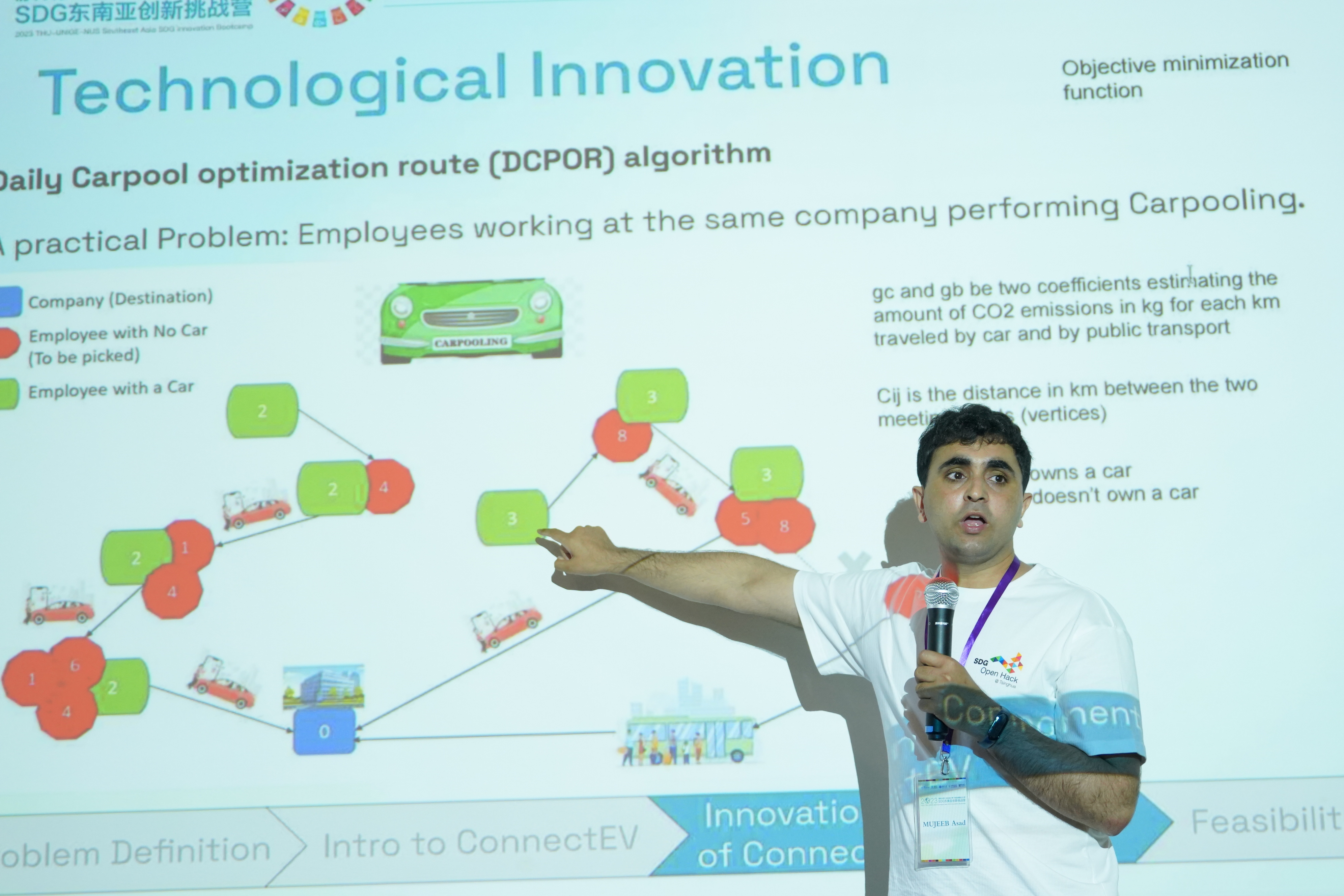
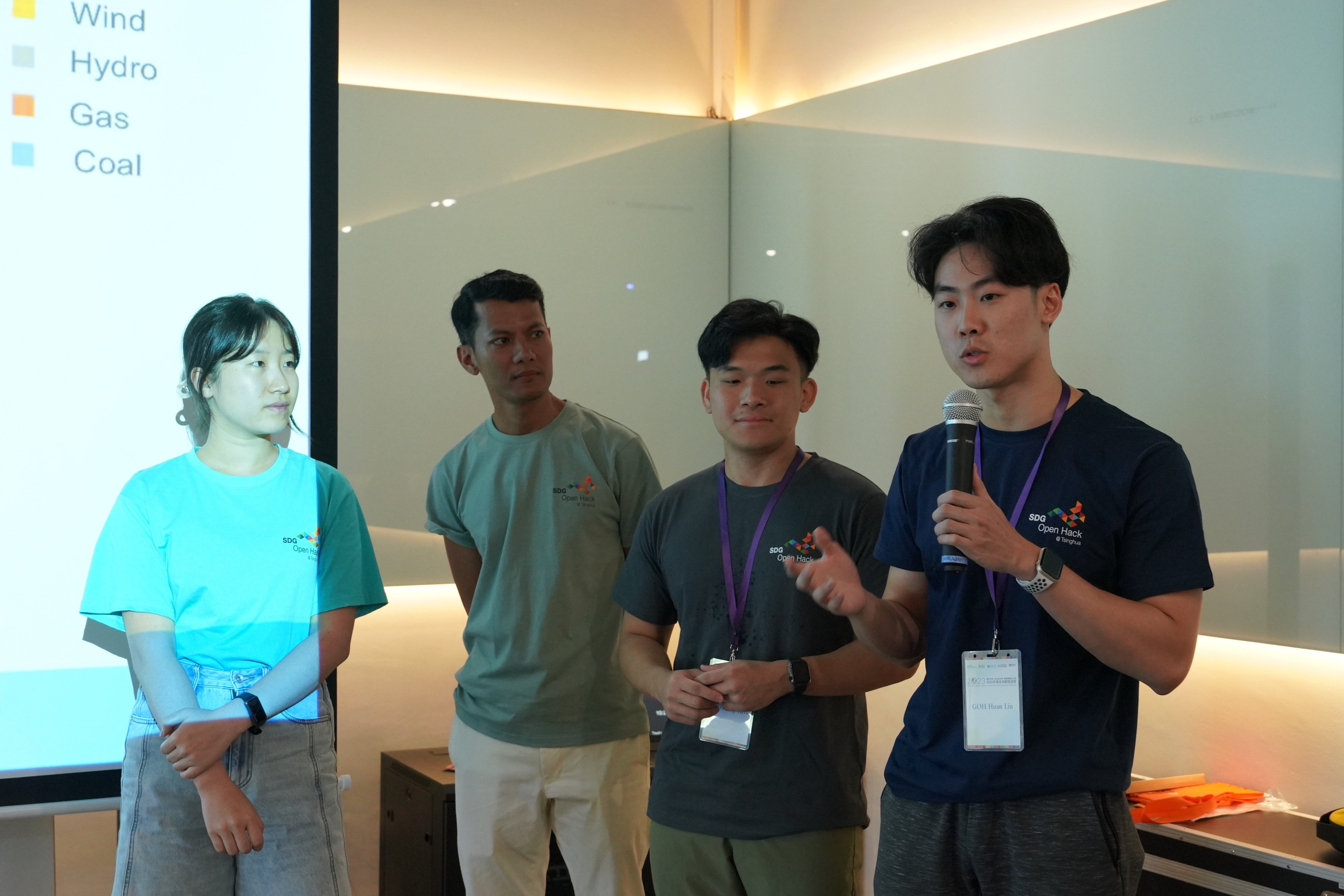
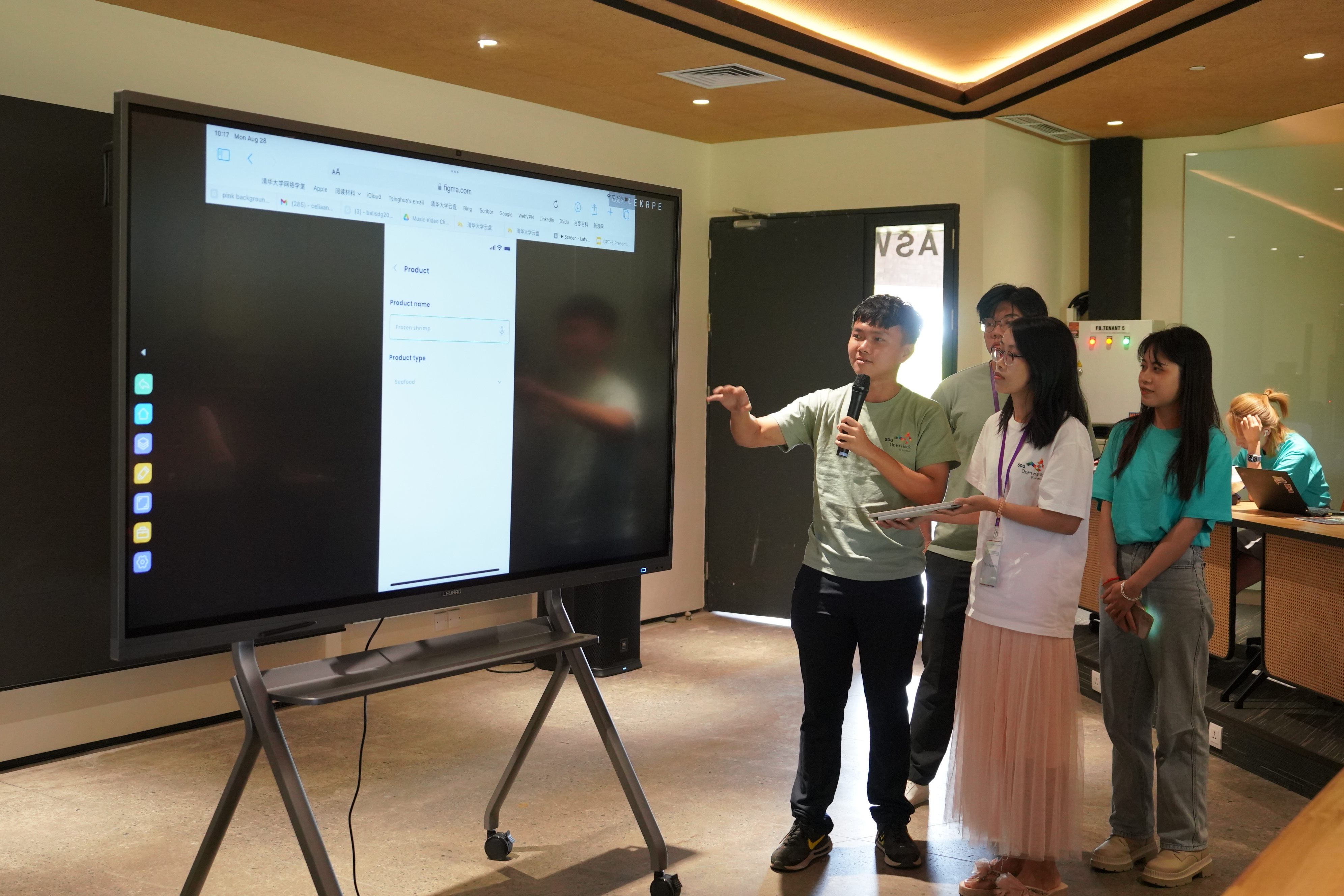
Teams pitch their ideas.
In the sub-hack themed "Innovative model for energy transition in the context of peak carbon and carbon neutrality," students on the Sparc team designed software to promote a low-carbon lifestyle by shaping user behavior and fostering carbon reduction and emission reduction through market-driven approaches. Their creation earned the Social Innovation Award. Students on the Connect EV team drew inspiration from carpooling concepts, optimizing route-based carpooling technology and cultivating user habits to promote more sustainable and eco-friendly travel. Their project won the Technical Innovation Award. Other students on the Green-Green Transportation team designed an integrated electronic highway with a focus on sustainable energy, empowering the transportation sector with green intelligence and winning the Outstanding Team Award.
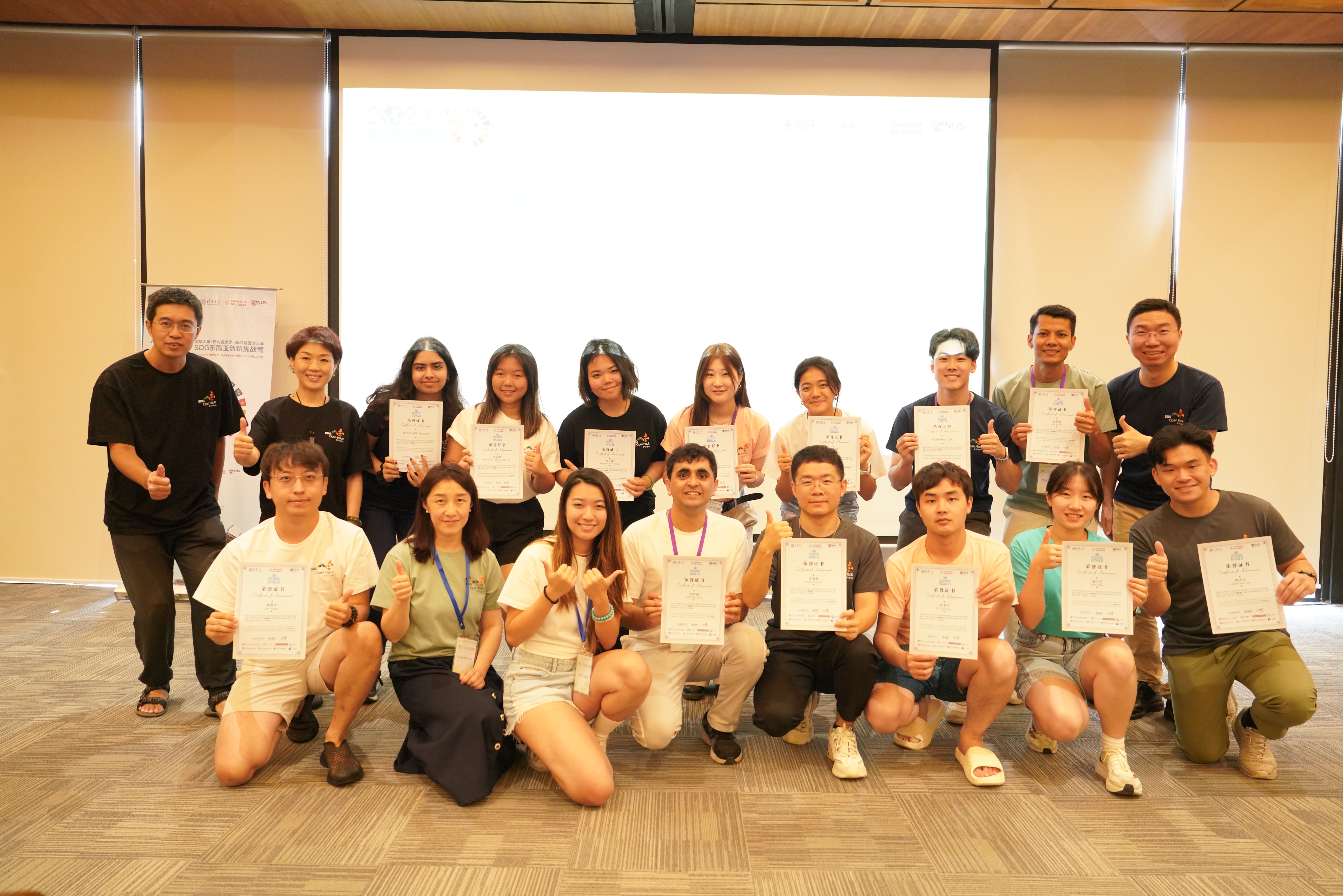
Group photo of the Energy and Environmental Protection Sub-hack
In the sub-hack themed "Exploring an innovative model of human-oriented cities and sustainable agriculture under rural revitalization," the Barefoot Doctors team, focused on rural healthcare, designed a high-tech health monitoring system, which earned the Social Innovation Award. The Turtle Sapiens and Wave Fairies team turned its attention to highly knowledgeable elders in urban areas and formulated plans to attract them back to rural areas through learning projects, which won the Technical Innovation Award. The Easy Carriers, Easy Roads team designed an AI-powered application that utilized big data to help rural residents advertise their products and boost sales, which earned the Outstanding Team Award.
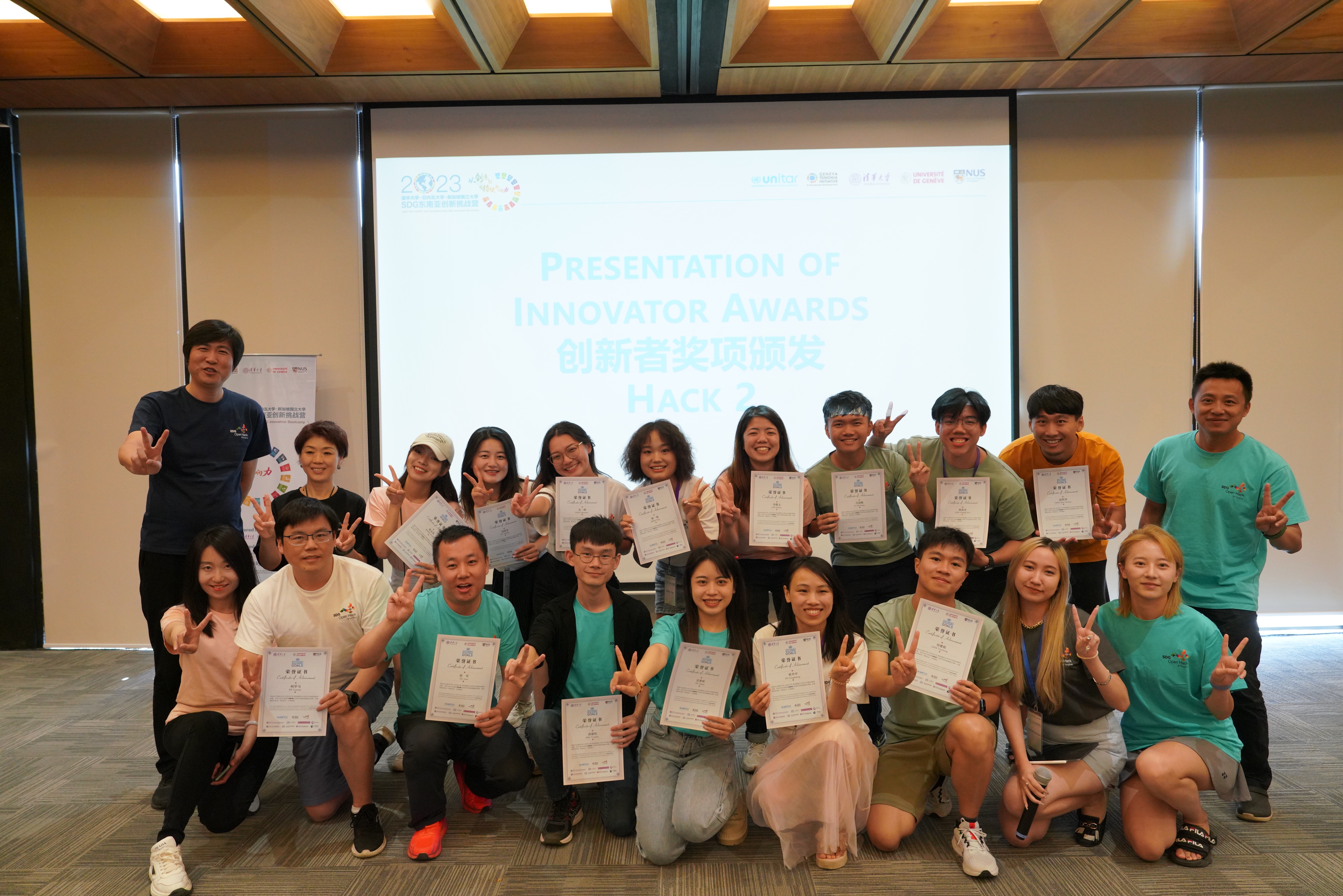
Group photo of Rural Revitalization and Smart Agriculture Sub-hack
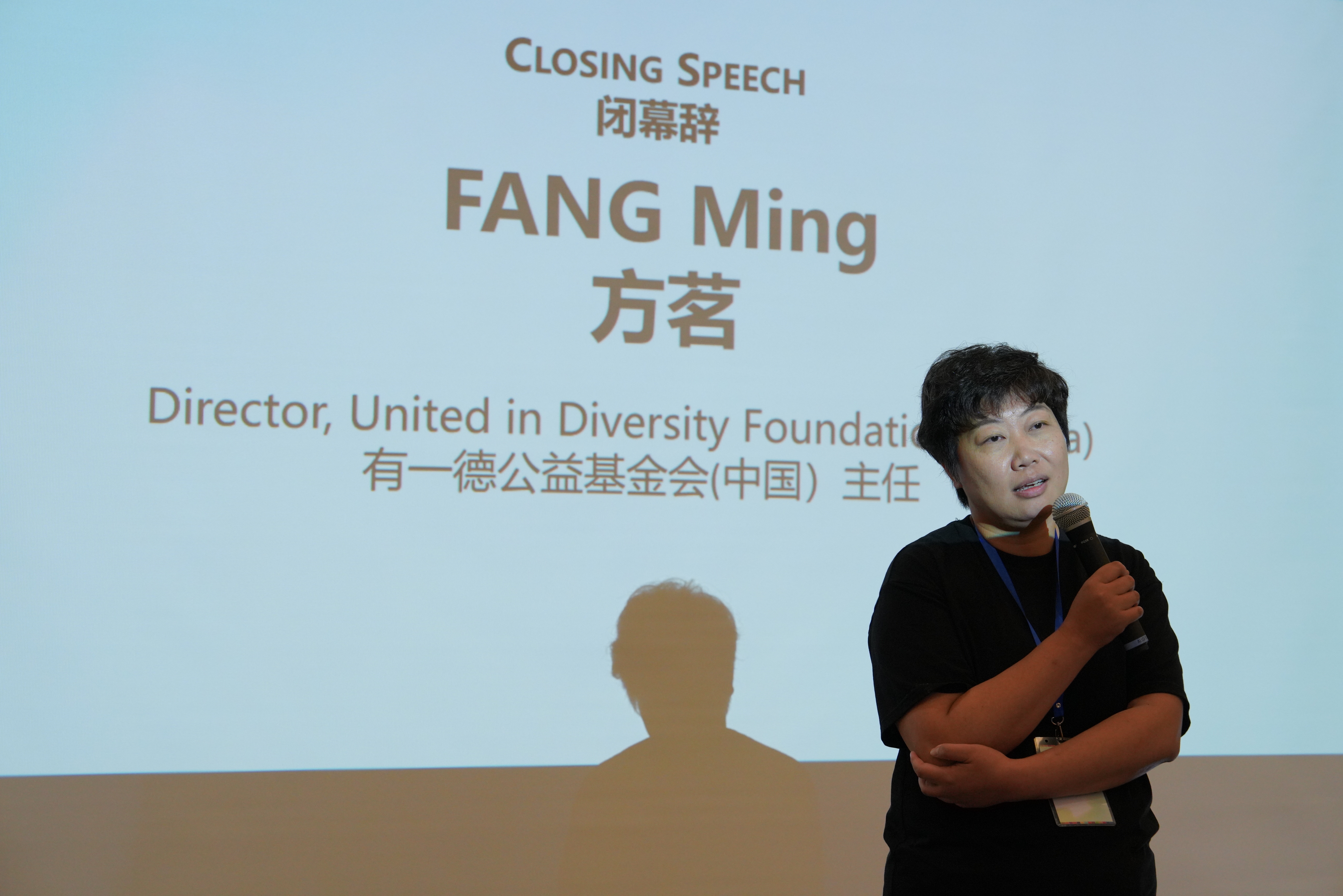
Closing ceremony
At the closing ceremony and awards presentation, FANG Ming, director of the United in Diversity Foundation (China), said, "I believe this journey is far from over. I hope the diverse ideas and inspirations that have emerged during this time can serve as a blueprint for future development. Together, let's continue to contemplate and implement these ideas, realizing our dreams and truly changing the future." HAO Xiuqing said, "I feel astonished and proud to see the remarkable achievements made by all of you in just a few days. I hope all students can take away something valuable from this experience and continue to advance these ideas."
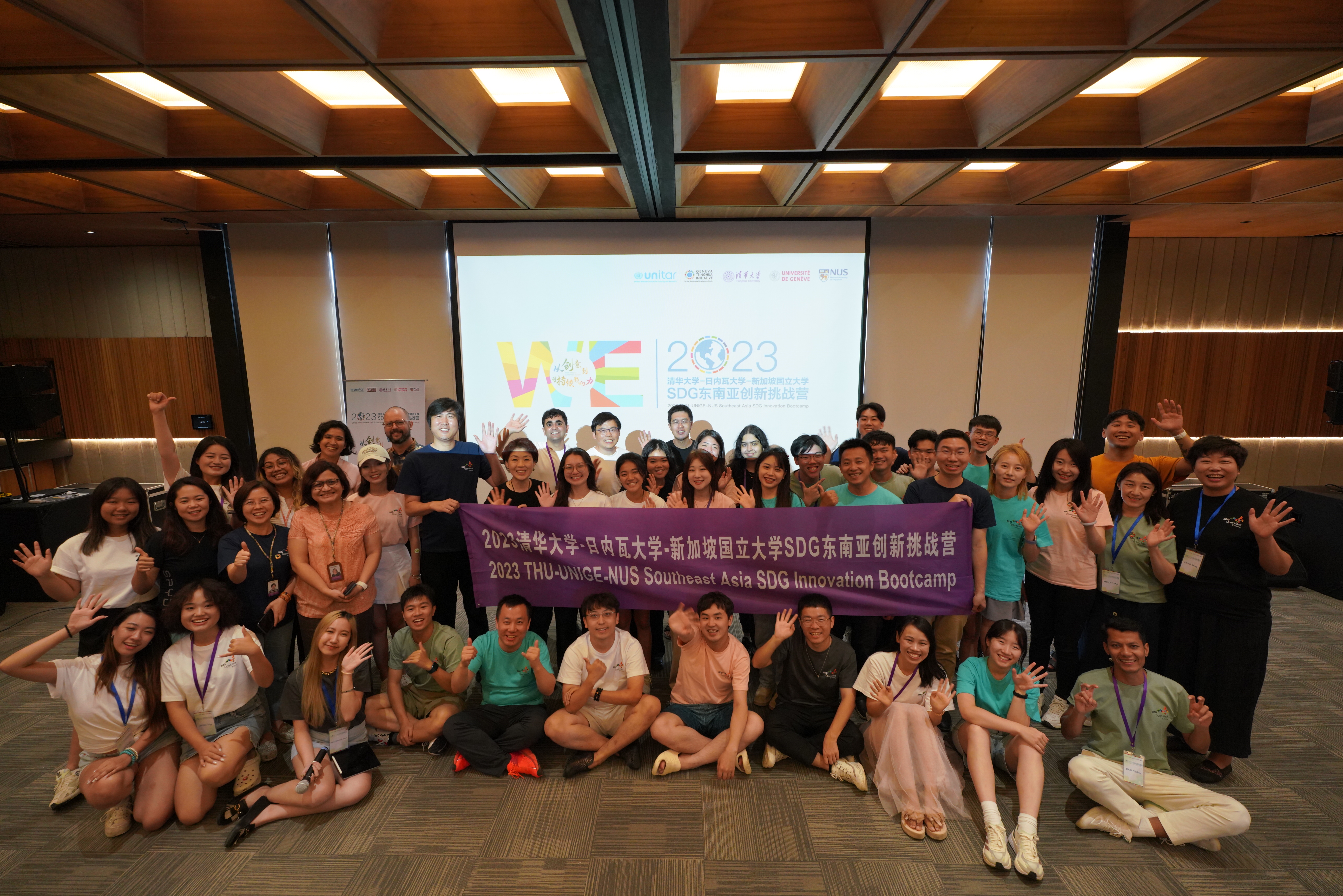
Group photo
LO SMITHGUL Shirley, a student at Tsinghua University, said, "Despite our diverse backgrounds, coming from different universities, nationalities, and fields of study, we all shared a common passion and goal of finding innovative ways to realize all 17 sustainable development goals. We found many cultural overlaps that helped us connect on a deeper level. Our differences motivated us to make extra effort to establish mutual understanding." Goh Huan Lin, a student at National University of Singapore, said, "The hackathon topic was insightful and fascinating. It was my privilege to be able to connect with the great minds of the students at Tsinghua to come up with an innovative product and solution to aid in the development of sustainability."
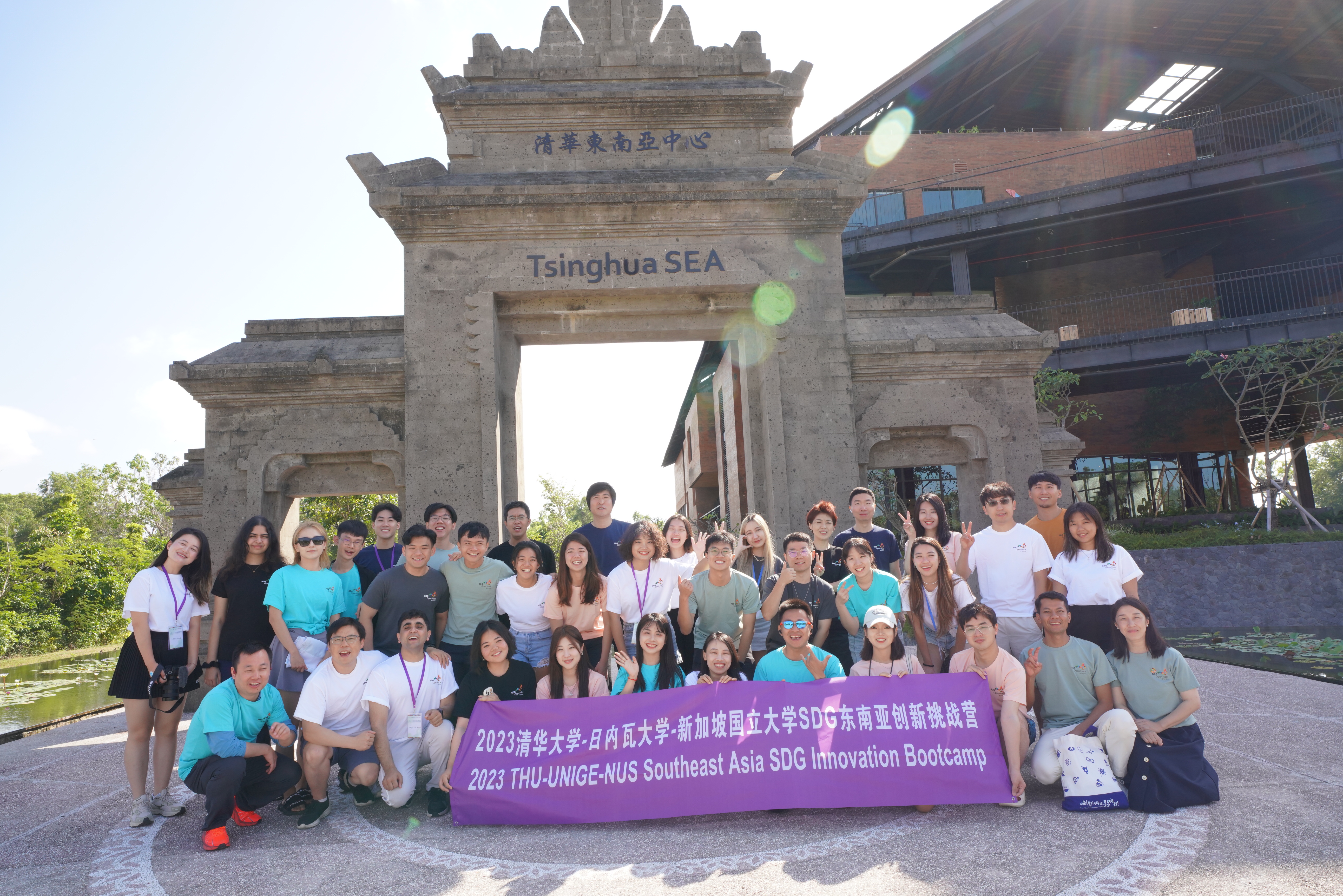
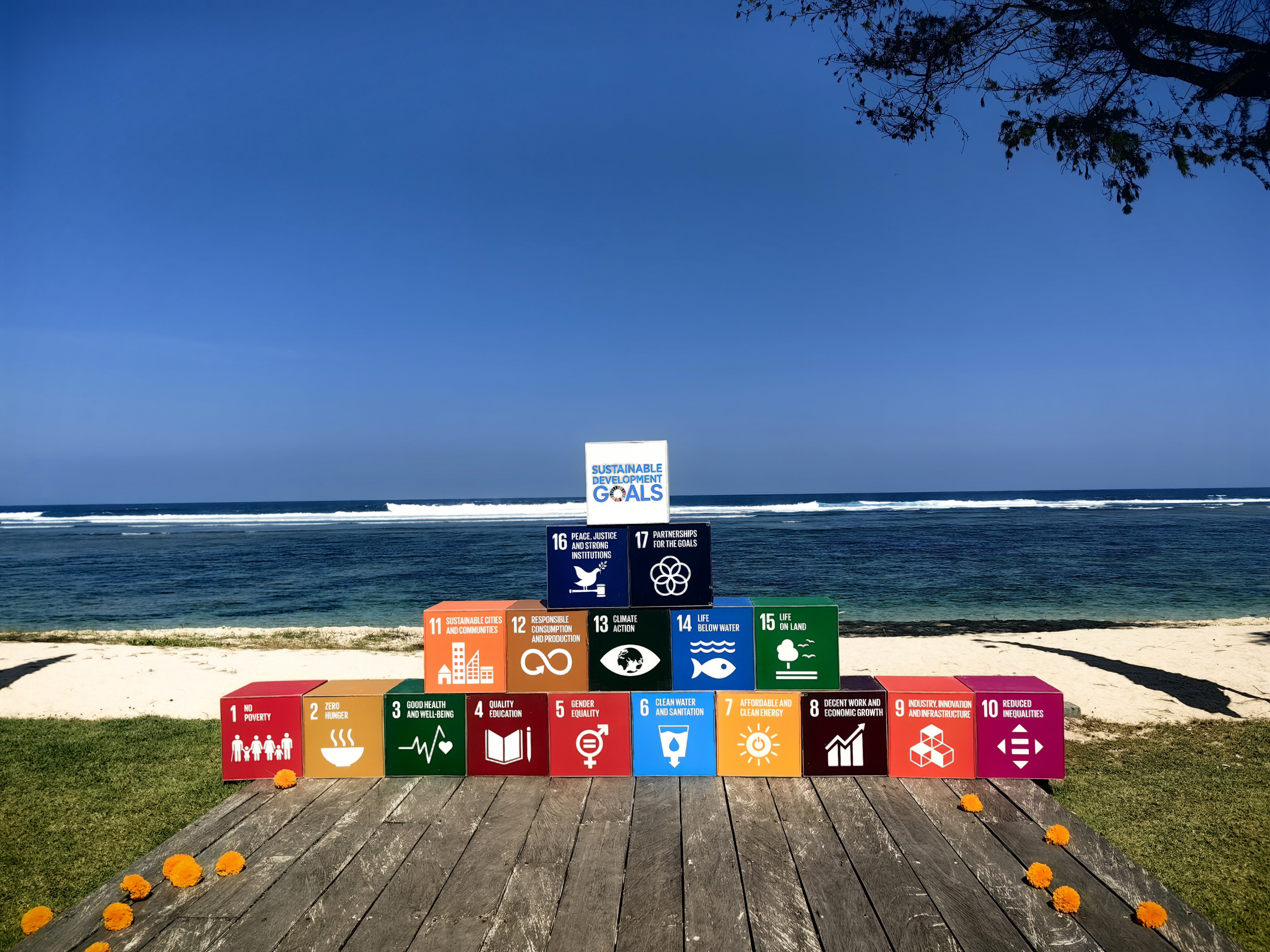
Source: Tsinghua x-lab
 Latest News
Latest News